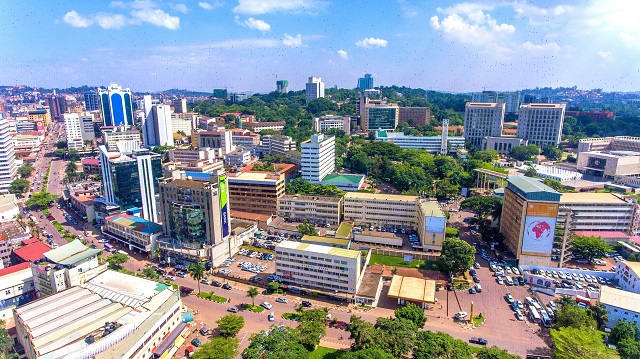Business is Kampala is off to a slow start following the lifting of the second lockdown which was reinstated in June to curb spread of the pandemic. Kampala, Uganda | THE INDEPENDENT | The recovery of the economy has suffered a setback following the 42 days that the country was under a lockdown, this is according to economic analysts.
The economy was recovering from the effects of the March-to-June 2020 lockdown, with both the Bank of Uganda and the private sector reporting revived activity, despite some sectors remaining under lock.
The country’s economy grew by about 3.1% in the financial year just ended, which was slower than the 6.2% that had been forecast before the outbreak of Covid-19. Positive growth was mainly attained from the second and third quarters, because the first quarter (April to June 2020) was the hardest hit since that was when the country was put under the first lockdown.
Following the reopening, the economy picked up, but the Bank of Uganda, the World Bank and the International Monetary Fund were all in agreement with the Ugandan private sector, that the second wave of infection would reverse these gains, especially if another lockdown was instituted.
They hoped that by then, a reasonable part of the Ugandan population would have been vaccinated. However, by the time the second wave set in, less than one percent had been vaccinated.
Now the Purchasing Manager’s Index (PMI), a monthly study of the private sector activities in Uganda shows that in July, activities and the investors perception of the business continued to fall. The PMI slipped to 34.6 in July, down from 34.9 recorded during June.
This is the second successive decline in business conditions since the lockdown was enforced in June 2021. The latest reading is well below the series average of 52.5.
A reading below 50 indicates a decline in business activity and a deteriorating environment, while above the 50 mark, indicates a positive environment and growth.
According to the index, output, new orders and employment were all down for the second successive month in July. This also led to a reduction in prices especially because of low demand. “A reduction in prices was noted for the first time in 14 months. Companies lowered their selling prices amid weak demand. Although on a more positive note, firms were optimistic that activity will rebound once lockdown restrictions are lifted,” Ronald Muyanja, the Head of Trading at Stanbic Bank […]
